One Flew Over The Cuckoo’s Nest is often considered one of the greatest achievements in cinema. Years before The Shining took him to new heights with his creepy, murderous, maniacal portrayal of the real-crazy Jack Torrance, Jack Nicholson was giving life to the fake-crazy (or was he?) Randel McMurphy.
Despite the Ken Kasey adaptation being remembered so fondly, there were also bound to be at least a few mistakes hidden away somewhere. We’ve listed 10 of the biggest errors in continuity from the 1975 classic.
10 Regeneration?
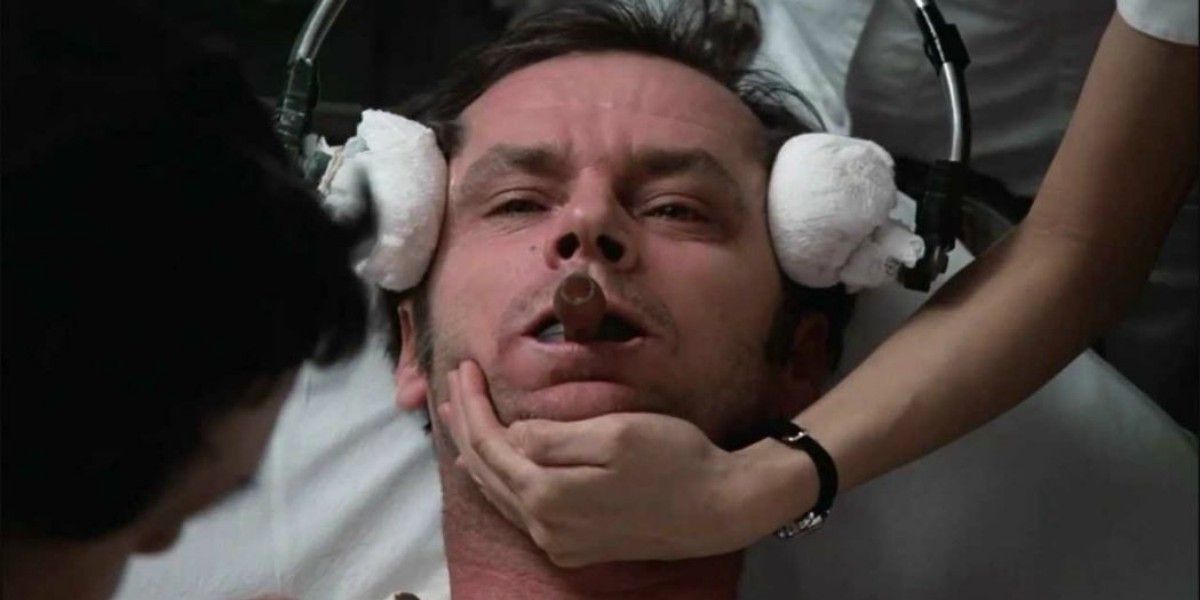
One of the more harrowing aspects of One Flew Over The Cuckoo’s Nest is the frequency of electroconvulsive therapy. Luckily, this type of treatment for mental illness has been replaced by much more humane methods in recent years, but back then it was all too prominent (and was nowhere as terrifying as in the film).
While a group of the mental institution's inmates are being led towards ECT by one of the orderlies, the orderly does a bit of a Doctor Who maneuver and changes his body and face. When they reach the other side of the door, he has a new face and has grown at least 6 inches taller.
9 The Wrong Votes

If there is a scene from One Flew Over The Cuckoo’s Nest that has endured as an example of Jack Nicholson’s incredible acting ability, it is when he provides fake commentary for a baseball game Nurse Ratched isn’t letting them watch. Before she puts her foot down, McMurphy does a vote, counting ten people who want to watch, and eight who don’t. They win! For some reason, he tells her its ten to nine, which doesn’t really help him make his case very well.
8 Nurse Ratched’s Lack Of Injury

As one of the most soulless, evil characters in the history of film, all we want is for nurse Ratched to get her comeuppance. We never quite get it, though, because by the end of the film she is very much still alive (even if she is in a neck brace) and the inmates are all worse off.
Anyway, one of the few moments where Ratched is punished for her personality comes when McMurphy strangles her half to death after she bullies Billy into suicide. Despite his violent attack, we see her lying on the floor with not a mark on her.
7 Quick-Growing Beard
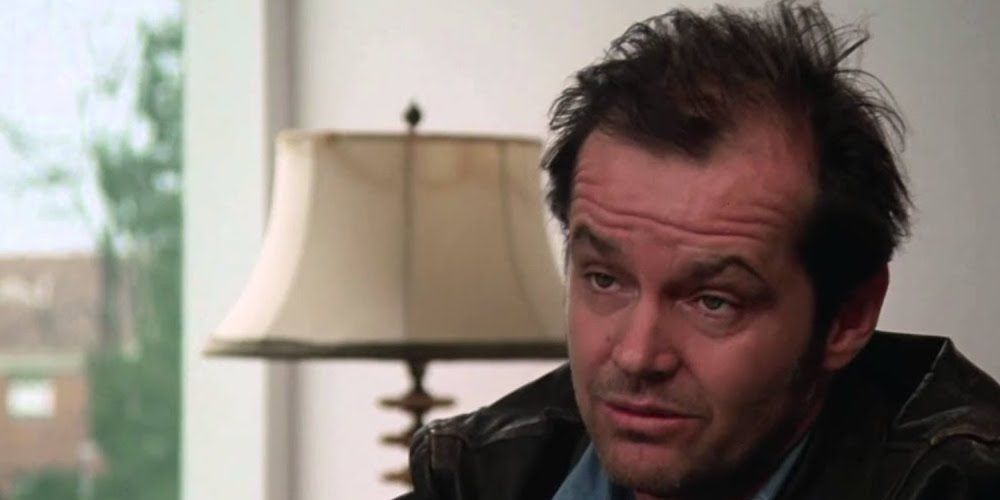
Toward the start of the film, the inmates are all explanting whether they are in the mental institution on a voluntary or involuntary basis. They’re all sat around in white uniforms in a big circle, with the evil Ratched leering over them, creating one of the film’s most iconic scenes. Depending on the shot, Jack Nicholson is either completely shaven or has a very short bit of stubble. This seems to suggest that this particular scene either took multiple days to complete, or they had to return to it to later on in the filming process to make changes.
6 Pre-Marked Billy
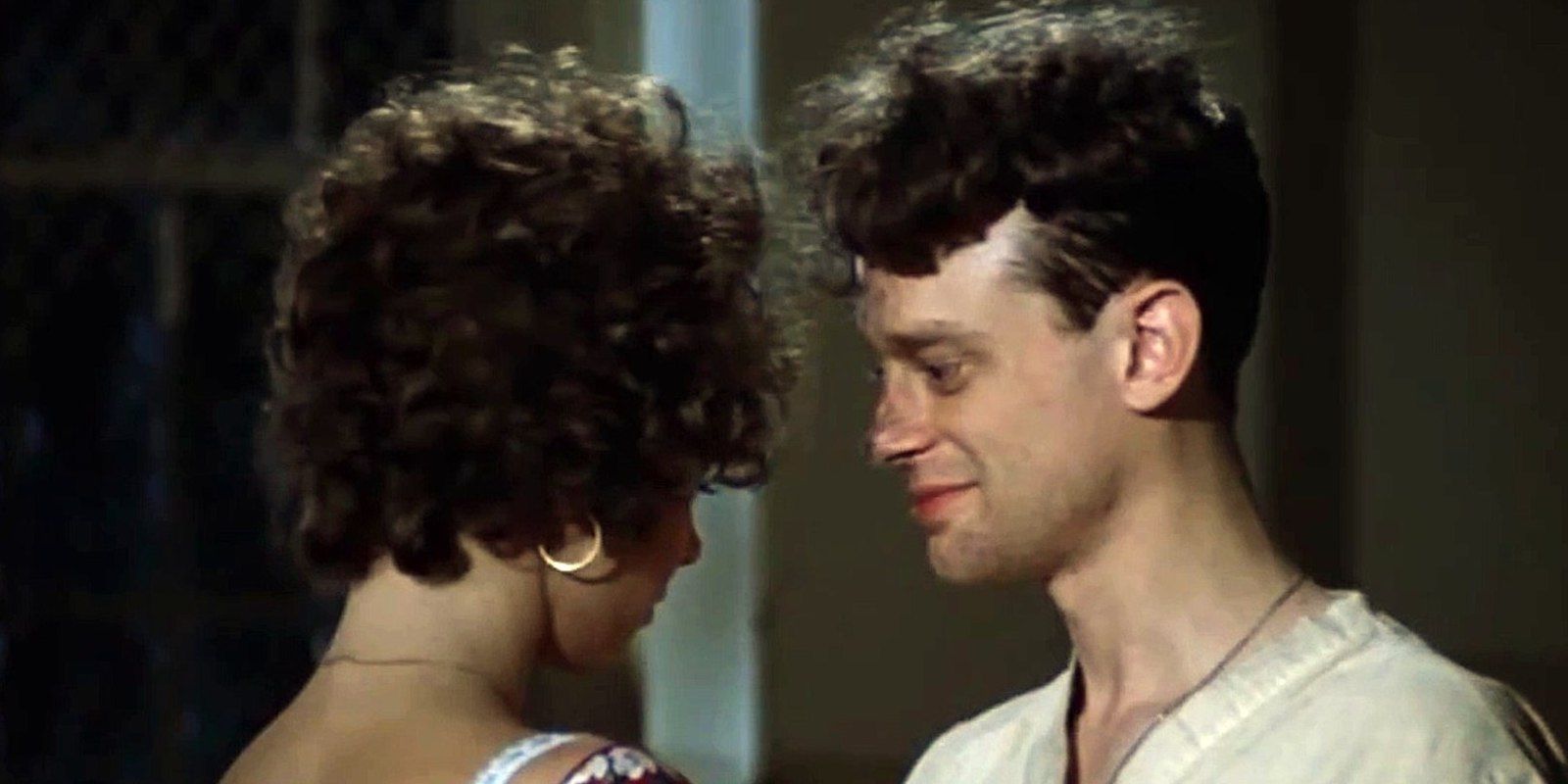
One of the final straws for Billy before he very tragically took his own life was being caught sleeping with Candy. Of course, McMurphy partially blames himself, but we all know it is down to the fear induced by (and brutality inflicted by) nurse Ratched.
However, when he runs naked from the room, the red mark on his upper leg is already visible, before he falls and hits the ground. This either suggests that the shot had already been taken a few times (thus leaving a mark), or that the mark was pre-applied to the actor.
5 Cheswick’s Water To Wine
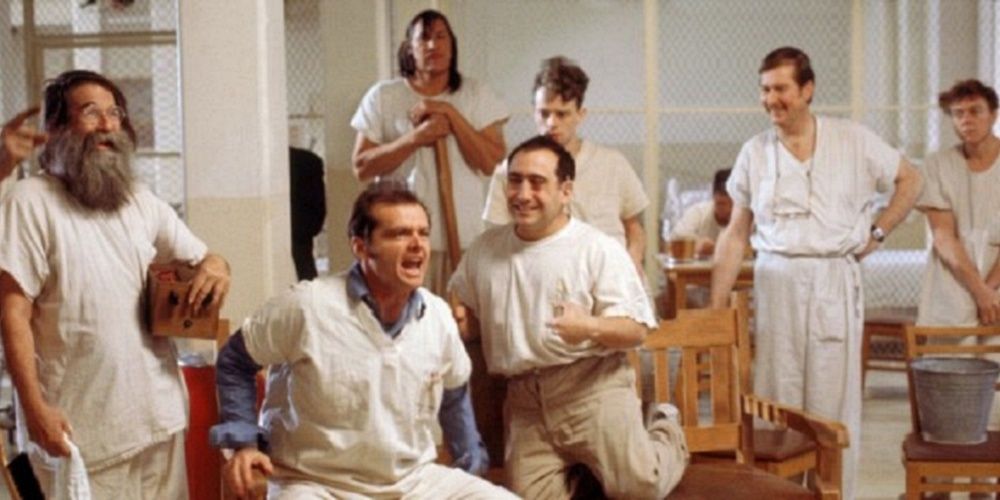
Cheswick is one of the best characters in One Flew Over The Cuckoo’s Nest. His undying support for McMurphy and incredibly funny retorts and extreme emotions make him the best bit of comic relief in the film. Luckily for the audience, his suicide as depicted in the book was left out of the film. There is one particular scene where he is moving a colorless liquid from a bottle to a jar, but the liquid quickly turns red when people start drinking it. It’s like he has turned his water into wine.
4 Changing Water Levels
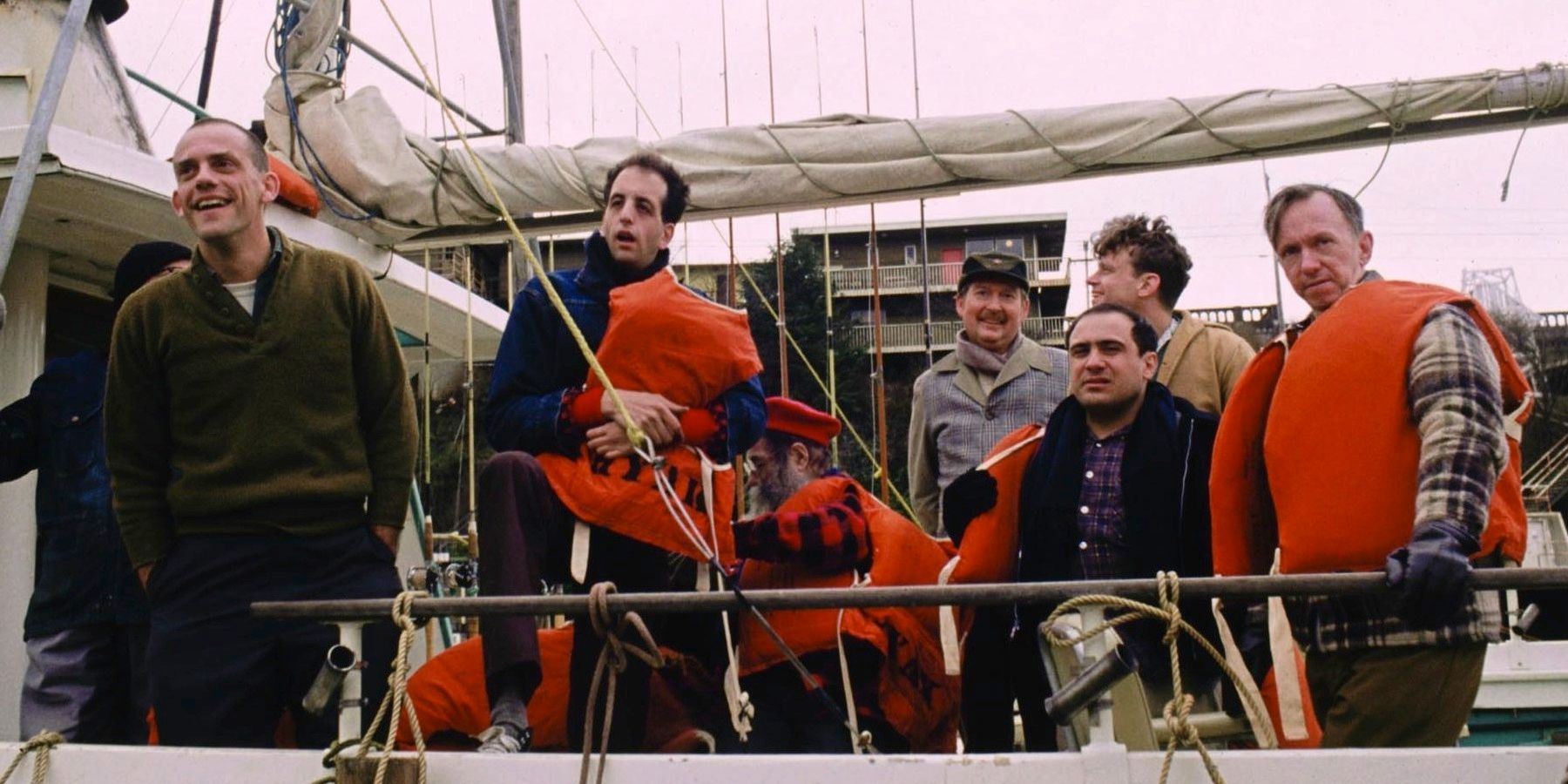
This is a pretty unavoidable error in continuity for a film shot with multiple takes and angles for each scene. As the group goes fishing, the sea seems to change from windy, rough conditions, into smooth and calm conditions. Obviously, this could actually happen in real life, but there are certain shots where the changes are way too quick for it to be physically possible.
3 Harding’s Medicine Hand
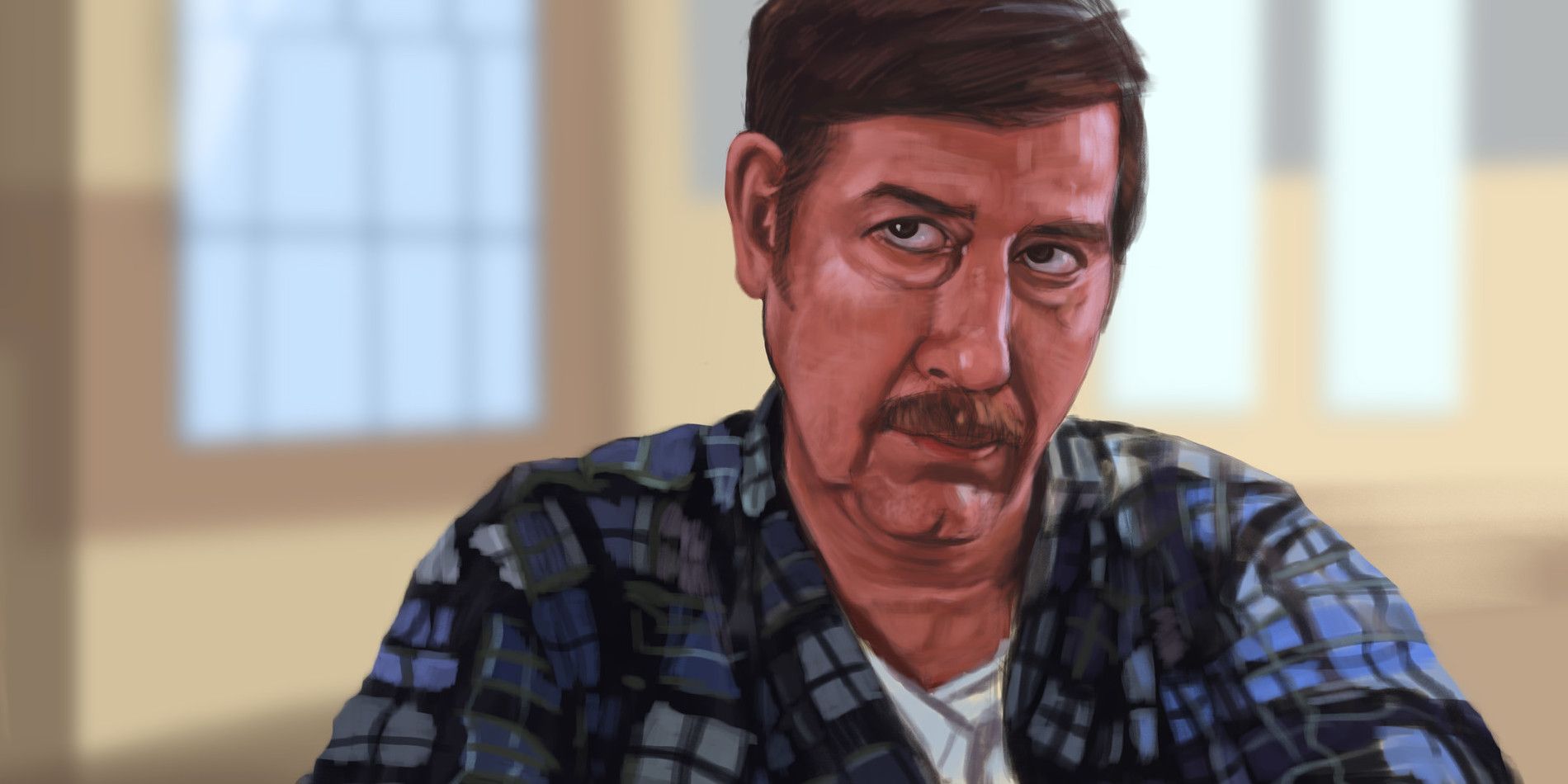
Harding is an interesting character. He seems to be the most normal of anyone in the room at any given time, but his strange outbursts of anger seem quite out of character, while his own self-deprecating outlook on life gives the suggestions of a manic depressive. Then again, he was voluntarily committed, so he must have at least some understanding of his own mental state.
The hand he drinks his medicine with changes as the camera shot does. At first, he is drinking with his right hand, but when the camera angle changes, his right hand is now holding a newspaper and he is drinking with his left.
2 The Disappearing Bag
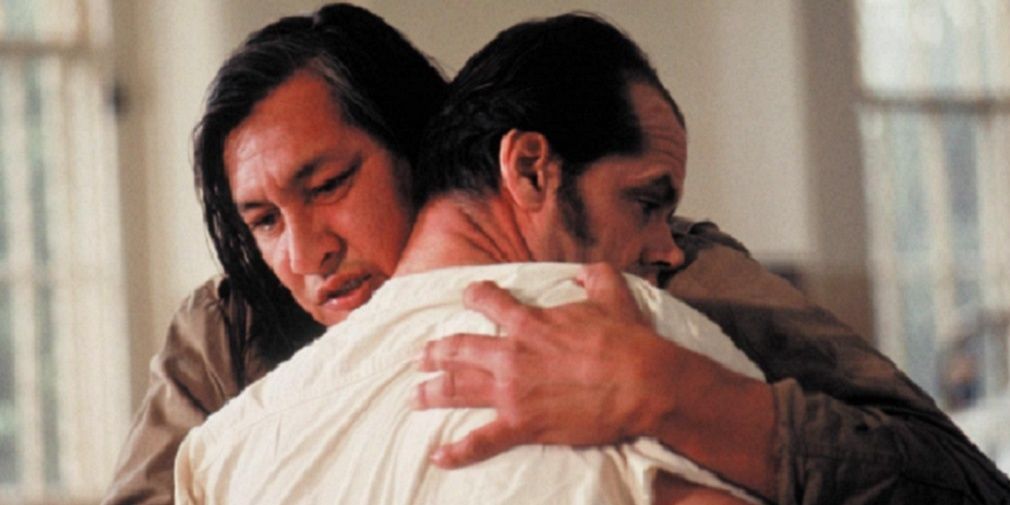
At the end of the film where Randle is being taken back into the ward after his surgery, the doctor places his own bag on the floor. When the scene changes, we can both see the exact place that the doctor put his bag, and the doctor walking out of the room. However, the bag is neither where it was left, nor being carried out by the doctor who brought it in. Very suspicious.
1 Real-Life Continuity Errors
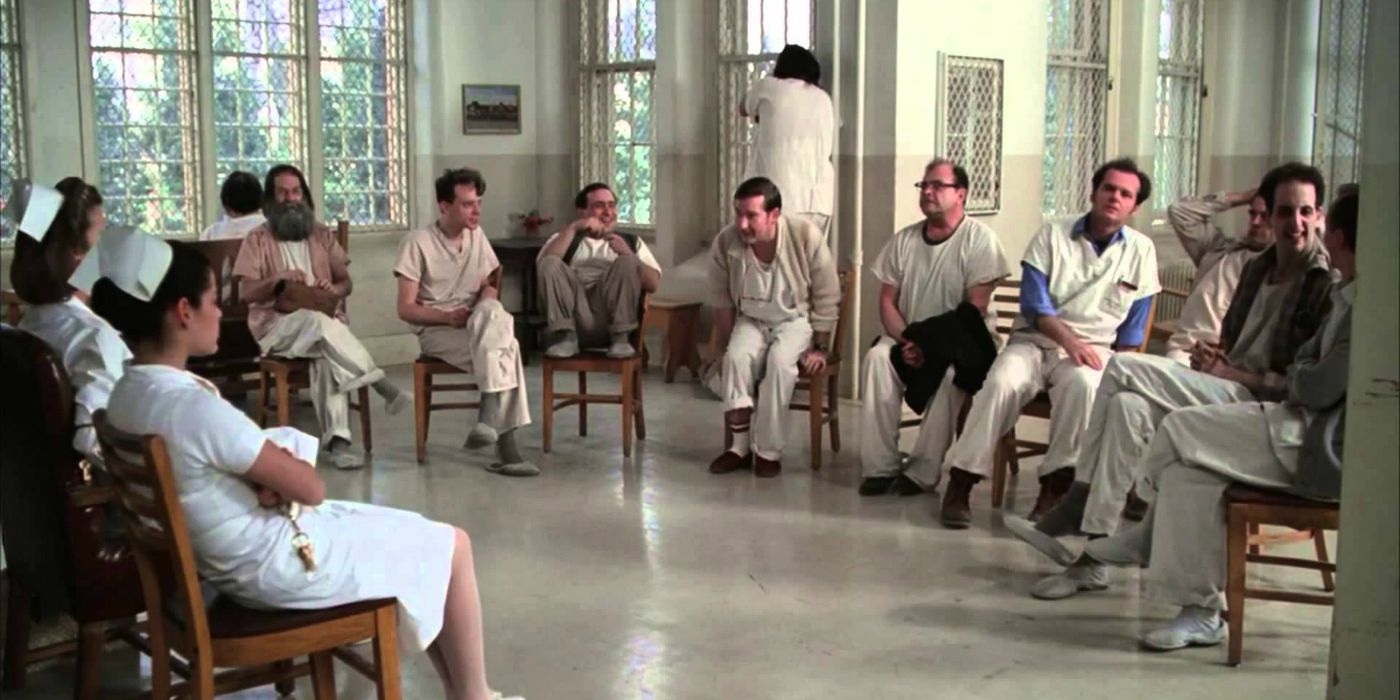
There are also a couple of errors that don’t quite add up to the continuity of real life. As the film is set in 1963 (yet released in 1975) there are certain things that should have been being looked out for.
However, there are still plastic pieces in the monopoly game, duck crossing signs and cars from the 1970s on the roads. This suggests that they didn’t check their own timings against reality very well.
from ScreenRant - Feed https://ift.tt/3akzqtT





No comments: